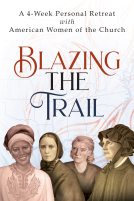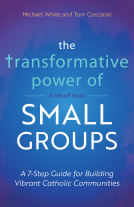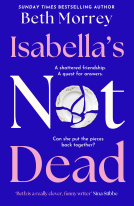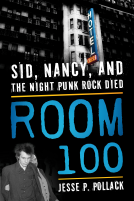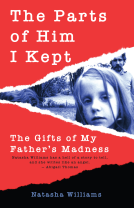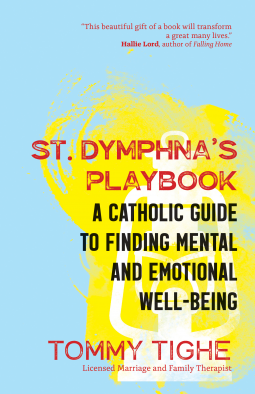
St. Dymphna’s Playbook
A Catholic Guide to Finding Mental and Emotional Well-Being
by Tommy Tighe
This title was previously available on NetGalley and is now archived.
Send NetGalley books directly to your Kindle or Kindle app
1
To read on a Kindle or Kindle app, please add kindle@netgalley.com as an approved email address to receive files in your Amazon account. Click here for step-by-step instructions.
2
Also find your Kindle email address within your Amazon account, and enter it here.
Pub Date 5 Nov 2021 | Archive Date 2 Dec 2021
Talking about this book? Use #StDymphnasPlaybook #NetGalley. More hashtag tips!
Description
Are you or someone you love struggling with depression, anxiety, grief, or other mental health concerns?
Tommy Tighe, a licensed marriage and family therapist, wants to help you take steps toward reaching and maintaining mental and emotional well-being, not only through self-care, healthy coping mechanisms, and professional intervention but also through prayer, scripture, and developing a relationship with the saints. St. Dymphna’s Playbook combines a therapeutic approach with the deep wells of Catholic faith and spiritual practice, exploring paths toward hope, healing, and wellness.
Born out of Tighe’s podcast of the same name, St. Dymphna’s Playbook provides a practical, ready-made game plan for moving toward wellness. It offers concrete explanations of a wide scope of mental health concerns and symptoms related to depression, anxiety, trauma, relationships, and grief, as well as the common emotions and situations that allow them to grow—including fear, social anxiety, isolation, loss, and unhealthy relationships. Tighe shares best practices for understanding and beginning to address each concern and offers a uniquely Catholic understanding, diving into relevant scriptures and introducing us to a Catholic saint or holy person who lived with the same issue—including St. Dymphna, patron of those with mental disorders.
Whatever your concern or struggle, you are not alone. The witness of scripture and the saints reminds us of the community we already have as we begin working toward mental well-being.
A Note From the Publisher
Tighe has appeared on Relevant Radio, EWTN Radio, and The Catholic Channel on SiriusXM Radio—the station that runs his podcast The Chimney. He has contributed to publications including Angelus News, Catholic Herald, CatholicMom.com, Aleteia, and Catholic Digest.
Advance Praise
"Very few people can speak with authority about the interplay between traditional mental health treatment and the healing power of the divine, but Tommy Tighe does so in St. Dymphna’s Playbook with compassion, vulnerability, and wisdom. If, like me, you have ever struggled with depression, anxiety, or any other mental health disorder, this is the guide for which you’ve been waiting. This beautiful gift of a book will transform a great many lives."
Hallie Lord Author of Falling Home
“Whether you struggle with mental health or support someone who does, St. Dymphna’s Playbook is an essential read that illuminates common experiences around depression, anxiety, trauma, relationships, and grief. It’s accessible, easy to comprehend, and a great gift to our Church, full of practical tools and abundant in hope.” Scott Weeman Founder and executive director of Catholic in Recovery
“There are valuable insights in St. Dymphna’s Playbook to help Catholic leaders minister to people living with mental health challenges and illnesses. In addition to professional guidance, this book also shows how the saints—many of whom lived with mental illnesses themselves—can guide you in your ministry.” Deacon Ed Shoener President of the Association of Catholic Mental Health Ministers Compiler and editor of Responding to Suicide: A Pastoral Handbook for Catholic Leaders
“If you experience mental health symptoms or love someone who does, you will find Tommy Tighe’s book moving and helpful. He provides hopeful, practical tools to utilize immediately and blends wisdom from saints, scripture, and clinical experience into the perfect mix of relatability and sound psychological advice. I will be recommending St. Dymphna’s Playbook to many people.” Regina Boyd Catholic mental health professional and host of the podcast Connecting Out Loud
Available Editions
| ISBN | 9781646800889 |
| PRICE | US$17.95 (USD) |
Featured Reviews
I have followed Tommy Tighe from way back in Catholic Twitter, and when the good people at NetGalley and Ave Maria Press gave me the chance to read an advance copy in exchange for my honest review, I jumped at the chance.
The format of this book is straightforward and clear - different aspects of mental health are put forward, reviewed and then looked at from the perspective of the Bible and the Saints. Bullet points for main themes and steps to take for progress in healing are included.
The real brilliance of this book shines through in the sharing of experiences from Tighe's life and the life of the Saints. After all, the main takeaway from this book is that we need to talk about mental health and help remove the stigma around the discussion. As a Catholic community, we are called to care for each other, to pray for each other, and how can we do all of that if we don't talk to each other? Tighe proposes this question beautifully.
Definitely pick up a copy, heck, pick up a few - share them liberally with those around you, and then, sit down and really, truly - talk!
 Maria G, Reviewer
Maria G, Reviewer
Sometimes on the journey of faith one can be sidetracked by the complications that arise from depression, anxiety, trauma, or any other number of crosses which sap the spirit and trouble the mind.
Therapist and author Tommy Tighe is an expert not only in the science of mental illness, but also the substance of faith. In his book St. Dymphna's Playbook: A Catholic Guide to Finding Mental and Emotional Well-Being, Tighe offers sound advice for growing in faith while attending to mental health.
With kindness and compassion, Tighe also addresses particularly tough subjects, such as manipulative and abusive relationships, grief, and addiction. Accompanying Tighe's exposition of these topics are Scriptural reflections, saintly guides, healthy coping skills, and prayers.
Tighe also writes movingly about his own struggles following the loss of a beloved family member. His vulnerability and willingness to reveal his own wounds add greatly to the authenticity of the work.
St. Dymphna's Playbook ingeniously combines the practical with the spiritual in a self-help guide that could potentially help many, many people find the courage and the strength they need to continue on life's journey.
 Carol K, Reviewer
Carol K, Reviewer
When prayer alone doesn't help us out of a dark place, what does? If talk therapy hasn't led us back to the land of the living, what will? Therapist Tommy Tighe offers a sweeping, comprehensive list of coping mechanisms, including Bible verses, a saint or sage who struggled with one of the many issues covered here, and a uniquely Catholic approach to mental well-being. When all else fails, he suggests prescription meds as a way to jump-start getting ourselves onto the path for healing.
I like the way Tighe organizes the chapters around words from the sisters of Lazarus, "Master, the one you love is ill." No need for explanations or specific requests: "Jesus knows what we need before we ask," he understands sorrow, and he weeps with us. The chapter titles repeat this like a mantra: Lord, the One You Love Feels Nothing, or The One You Love is tired, is worrying, is battling intrusive thoughts, feels helpless or detached, is hurting themselves, is isolated. Universal struggles such as grieving over a lost child are presented along with less common DSM-5 conditions, from Obsessive-Compulsive Disorder to clinical depression.
The saints are fascinating and inspiring, and the community of saints is a great resource. It may seem that nobody hears our prayers, not even God, but a devotion to the saints has brought comfort to so many, it is not a concept I would discredit. Tighe quotes Dorothy Day: "We have all known the long loneliness and we have learned that the only solution is love and that love comes with community." Tighe recommends "trying to foster a Catholic community where we all suffer together, unafraid to walk forward with our sisters and brothers through their valley of tears."
This idea, too, is comforting: "the darkness and hopelessness we see all around us is not the final word." Does that make it any easier to overcome the heartbreak of burying a loved one? Only if we believe that God exists and we meet our loved ones again in some heaven after this life is over. Atheists, agnostics, skeptics, you may need to look elsewhere for help. Then again, even if you cannot believe the Bible is true, the examples and stories of others may be the key to helping us soldier on through the pain and sorrow of this world.
One takeaway from this book is that we may need medical assistance before we can find the wherewithal to crawl out of a deep slump. "Depresssion attacks our concentration, focus, and motivation, so we're quite frankly impaired in our ability to come up with solutions..... And it's not something we can just suck up and get over, as our culture often advises." Neurotransmitters in our brains affect chemical levels that in turn can leave us without energy and motivation, in which case, "therapy alone can even have a hard time making an impact, which is why medication is worth considering.... Therapy requires *some* motivation, some interest. If intense depression inhibits that drie, we should most definitely consider medication first."
Which meds? Which pills, and how long should we take them? That is for you and your therapist to discern. Never mind the stigmas on "mental illness" and drugs; "Medication for depression, even short term, can often be a crucial first step to feeling better."
Vitamin D, a healthy diet, keeping a diary, reaching out to others even if it means sitting on a park bench just surrounded by other people socializing with each other: these are just some of the tools, besides Rx meds, that Tighe offers.
I haven't even begun to summarize or touch on the many ways Tighe ties together the ways we can utilize the teachings of the Bible, the wisdom of the saints, the community of others who suffer with us and others who've survived and conquered, along conventional talk therapy and even prescription meds, which seem to be the tool of Last Resort, the thing we shouldn't need if we really trust in God to help us through all difficulties. Instead of laying the burden on us to just BELIEVE and we shall be healed, Tighe acknowledges that not everyone who prays for healing will receive automatic healing. It takes time and effort, and we have to do the work, but it may help us to know (believe) that we are not alone, and that there is no stigma to using a pill to jump-start the process.
I've debated: five stars, or four? For Christians, and especially Catholics, it's a solid five stars.
Thank you to the publisher and to NetGalley for this ARC in exchange for an honest review.
 Debbie K, Reviewer
Debbie K, Reviewer
When someone you love suffers from depression and anxiety, you tend to read a lot of books or articles to find the causes, treatments and best ways to help them. I know I have done that in the past, so when I found St. Dymphna’s Playbook - A Catholic Guide to Finding Mental and Emotional Well-Being by Tommy Tighe as a NetGalley ARC, I admit I was intrigued. Tommy Tigne is an experienced marriage and family therapist and St. Dymphna is the patron saint of mental illness, so after I read her story, I wanted to know more about the author’s view on mental illness and garner any helpful tips, or advice he had to offer. What I received was a whole lot more. This beautiful book is so engaging and sensitive to the needs of those who suffer from mental illness, that anyone reading it will be left with a feeling of reassurance and hope.
Unlike your typical self help books, Tommy Tinge takes a different approach when broaching the subject of mental health. His intent is to let the one who suffers know that they are not alone. There is often a stigma attached to people who suffer from mental illness and his goal is to remove that brand so people who suffer can feel free to discuss their problems and know there are others going through the same journey.
Each chapter is dedicated to a particular problem or illness someone may be having. For example, depression, anxiety, PTSD, grief, OCD or loneliness, are just a few of the many problems he tackles. He describes the symptoms of each illness or problem in detail and gives not only professional advice, but spiritual comfort as well. He includes how best to approach a problem based on how serious it is and assures us there is professional or medical help and spiritual consolation to be had. He also includes what the Bible says about a particular topic and also gives us examples of any saints that may have struggled with the same issue. This book not only contains medical knowledge and encouragement, but comforting spiritual guidance to those who are suffering and in pain. With empathy and sincerity, he approaches each and every illness with an insight from someone who has seen others struggle and relates to others by sharing his own personal testimony after suffering a personal loss of his own. I really appreciated his candor and honesty in how he grappled with regaining balance through the same knowledge, experience and spiritual consolation he gives his readers. I believe his honest and open dialogue will bring a lot of comfort to many people who are in pain and enlighten those who want to help someone they love to feel happy and whole again.
I want to thank NetGalley and Ave Marie Press for an ARC of St. Dymphna’s Playbook - A Catholic Guide to Finding Mental and Emotional Well-Being by Tommy Tighe. “The opinions expressed in this review are completely my own”.
 Elizabeth O, Reviewer
Elizabeth O, Reviewer
Often we feel steeped in fear, loneliness, feelings of exile, depression, or other mental illness from the evil one. It's not a romantic poem in a few short stanzas when it's a part of your daily life. This book is exactly what it sounds like: a playbook. Instructions for finding your way for a myriad of illnesses plaguing you or your loved ones.
I liken the book to a faithful complement to the DSM. Rather than cold descriptions, you have occasional anecdotes and real, spiritually practical solutions. The solutions are rooted in faith, prayer, scripture, and hope Mental illness is real and it can feel like a dark room into which you've been dropped. But through the Church and scripture God reminds us our feelings aren't reliable.
If you or someone you love are struggling with anything related to mental illness (depression, anhedonia, irritability, fatigue, hopelessness, anxiety, self-consciousness, OCD, scrupulosity, trauma, relationship struggles of all kinds, grief, and more), pick up this book as a guideline to lead you out of the darkness and a way to figure out how to turn on the light.
I received an advance review copy for free, and I am leaving this review voluntarily.
I love this book so much. It showed a Catholic vision about mental illness.
It's so important that catholics talk about this topic. A lot of Christians suffer with mental illness and feel bad about it.
The author shows that it is an opportunity to God fill our emptiness, heal our wounds and turn into sources of graces.
I love the Bible's passagers and the storys of saints' life.
Thank you Netgalley and publisher for free ARC in exchange of honest review.
4.5/5
The title of this book is what initially got my attention. As a Catholic, I knew St. Dymphna was the patron saint of those suffering from things like depression and anxiety. Seeing grief as one of the topics in the book also got my attention, due to suffering the loss of my father unexpectedly this year.
Tommy Tighe does a fantastic job of tackling the many issues so many people don’t want to. Tying it into what the Church can do to help alleviate the stigma surround the things that so many of us are either dealing with or have dealt with at one point or another.
Tighe gives suggestions on things the reader can do to help with whatever they are facing. His suggestions of therapy and medication are presented in ways that the reader does not feel he is pushing either one of them. They are presented with ways each may help and a reminder that either one does not have to be a life-long thing but can often provide help in the short term to help the reader be successful.
The inclusion of the saints and what the bible says about these various things is a wonderful part of each chapter. From my own experience, I often cannot thing of the appropriate verses during hard times. Having this resource will be very helpful. Some of the saints mentioned I had not heard of and I like knowing I have more heavenly friends to call on in times of need.
This will be a book I purchase for my own library when it is published. I can see it being helpful in so many situations.
Thank you to NetGalley, Ave Maria Press, and Tommy Tighe for the copy of this book in exchange for a review. All opinions are my own.
 Lisa S, Reviewer
Lisa S, Reviewer
St Dymphna, an Irish princess in the 7th century, fled from her father, and settled in Belgium where she cared for people with mental illnesses, even though there was a huge stigma attached to them. This stigma still exists, unfortunately, especially amongst religious people. Tommy Tighe, a clinical psychologist, follows in her footsteps, and wants to give people Catholic guidance in dealing with mental and emotional problems.
I thought at first that this book was only for those dealing with heavy emotional trauma. Tommy Tighe shares his own tragic story, and provides guidance for those suffering from depression and numbness. However, there is a chapter for almost every emotional problem in this book, including loneliness and resentment. Tighe offers practical tips for handling these states of mind, and he shares stories of saints who also suffered from them, and helpful Biblical stories and prayers. There are summaries at the end of each chapter.
This is a book that almost anyone can turn to again and again when they are suffering, and need direction.
I received this free ebook from NetGalley in return for an honest review.
Readers who liked this book also liked:
Michael White and Tom Corcoran
Christian, Religion & Spirituality
Jenny Linford; National Trust Books
Cooking, Food & Wine, History, Travel

